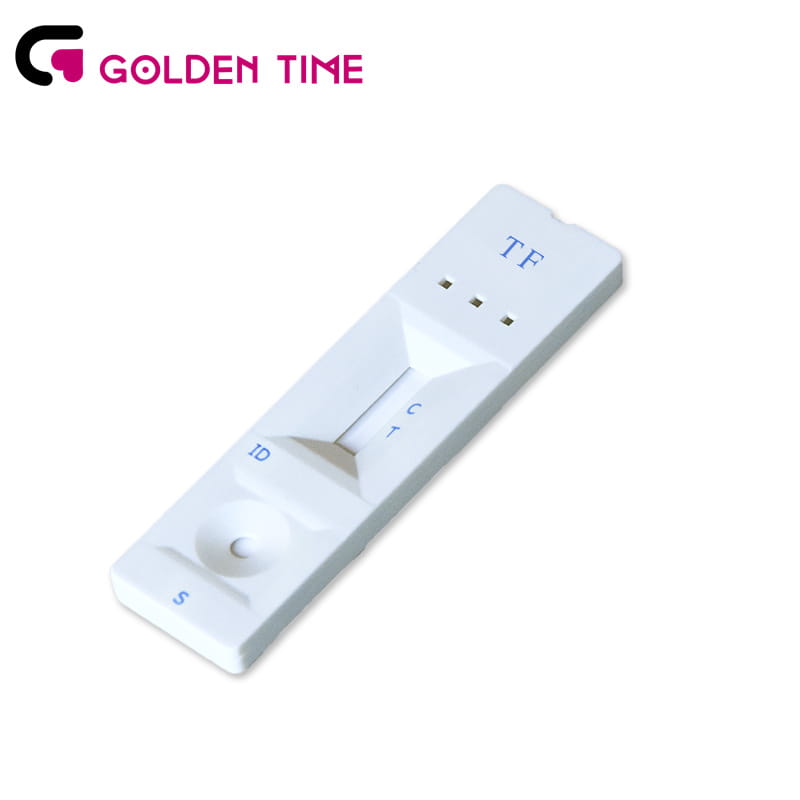Oct . 06, 2024 05:01 Back to list
diagnostic test for dengue supplier
The Importance of Diagnostic Testing for Dengue Fever A Focus on Suppliers
Dengue fever, a mosquito-borne viral infection, poses a significant public health challenge, particularly in tropical and subtropical regions. The World Health Organization (WHO) estimates that nearly half of the world's population is at risk of this disease, which can potentially lead to severe complications and even death. Effective management of dengue fever relies heavily on accurate and timely diagnostic testing. As such, the role of suppliers of diagnostic tests is crucial in combating this pervasive health threat.
Understanding Dengue Diagnostic Testing
Dengue diagnostic tests are essential for clinicians to differentiate dengue fever from other febrile illnesses. This is important because the symptoms—such as high fever, severe headache, pain behind the eyes, joint and muscle pain, and rash—are often nonspecific and overlap with other conditions like Zika and chikungunya. Diagnostic tests typically fall into two categories serological tests and molecular tests.
1. Serological Tests These tests detect antibodies (IgM and IgG) produced in response to dengue infection. IgM antibodies indicate a recent infection, while IgG antibodies suggest a past infection. Enzyme-linked immunosorbent assays (ELISA) and rapid diagnostic tests (RDTs) are commonly used in this category.
2. Molecular Tests Polymerase chain reaction (PCR) tests provide a more precise diagnosis by detecting the viral RNA. These tests are particularly useful in the early stages of the illness when the virus is present in the bloodstream.
Given the complexities associated with diagnosing dengue fever, the reliability and speed of these tests are paramount. Thus, suppliers must prioritize quality and efficiency in their diagnostic products.
The Role of Suppliers in Combatting Dengue
Suppliers of dengue diagnostic tests play an instrumental role in addressing the challenges posed by the virus
. Their responsibilities include1. Quality Assurance Suppliers must ensure that their tests meet international standards for accuracy and reliability. Regulatory approvals from bodies such as the FDA or CE marking for the European market are critical indicators of a product’s quality.
diagnostic test for dengue supplier

2. Accessibility To effectively fight dengue fever, diagnostic tests must be widely available, especially in endemic regions. Suppliers should work towards making affordable tests accessible to healthcare facilities in resource-limited settings, where rapid diagnosis is crucial.
3. Continuous Innovation The landscape of infectious diseases is constantly evolving, and dengue is no exception. Suppliers must invest in research and development to enhance existing diagnostic tools and create new ones. This can include the development of multiplex assays that can detect multiple pathogens simultaneously, thereby streamlining the diagnostic process.
4. Collaboration with Healthcare Providers Establishing partnerships with healthcare professionals, laboratories, and public health authorities can help suppliers understand the specific needs of the market. Feedback from end-users can drive product improvements and better align offerings with clinical requirements.
5. Education and Training Suppliers should provide training and resources to healthcare providers on how to use diagnostic tests effectively. Understanding test limitations and proper specimen handling is crucial for ensuring accurate results.
The Future of Dengue Diagnostics
As climate change and urbanization continue to expand the range of dengue-carrying mosquitoes, the importance of robust diagnostic capabilities cannot be overstated. The ongoing COVID-19 pandemic has also highlighted the significance of diagnostics in managing infectious diseases.
Investment in advanced technologies, such as point-of-care testing and mobile health solutions, could revolutionize how dengue is diagnosed and monitored. Suppliers must remain agile, ready to adapt to emerging challenges and leverage technological advancements to enhance the efficacy of their products.
Conclusion
In conclusion, suppliers of dengue diagnostic tests play a critical role in the global fight against dengue fever. By ensuring the availability of reliable, high-quality diagnostic solutions, they can significantly contribute to timely diagnosis and treatment. As the world faces an increasing burden from infectious diseases, the importance of collaboration, innovation, and education in the diagnostic supply chain cannot be underestimated. Addressing these facets will be key to safeguarding public health and improving outcomes for those affected by dengue fever.
-
Malaria Pf Ag Rapid Test Kit - Quick & Accurate Detection
NewsAug.11,2025
-
Accurate Cardiac Marker CK-MB Rapid Test for Quick Results
NewsAug.10,2025
-
Premium Empty ABS Plastic Cassette for Test Strips
NewsAug.09,2025
-
Sterile Urine Cup: Accurate Specimen Collection for Labs & Home
NewsAug.08,2025
-
Malaria Pf/Pan Ag Rapid Test Kit for Fast, Accurate Diagnosis
NewsAug.07,2025
-
Rapid Canine Corona Test: Fast & Accurate Results
NewsAug.06,2025

